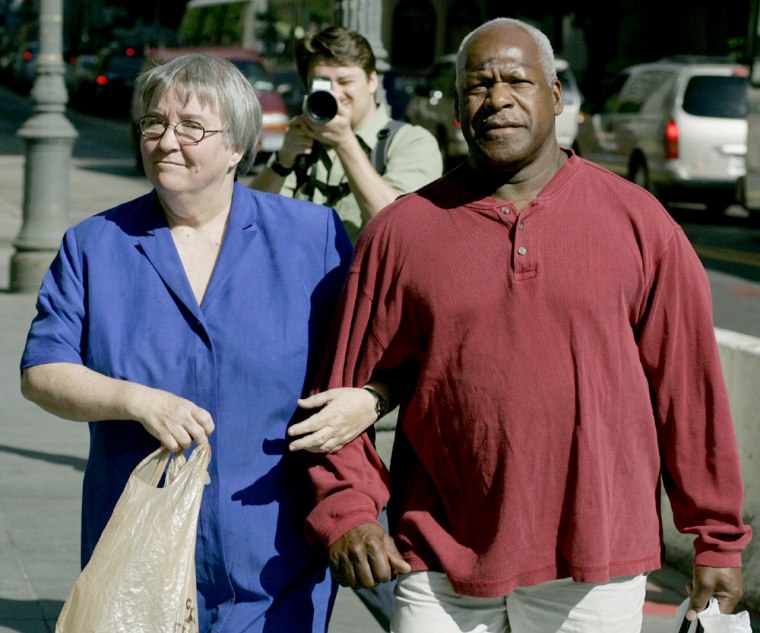Over three decades, civil rights lawyer Lynne Stewart has defended revolutionaries, terrorists and mobsters.
But in her most important case yet, the combative attorney finds herself in a new and precarious role: defendant.
Federal prosecutors have accused Stewart of conspiring with two associates to improperly aid her client Omar Abdel-Rahman, the blind Egyptian sheik serving a life sentence for conspiring to blow up New York City landmarks and assassinate Egyptian President Hosni Mubarak.
Opening statements in her trial could begin as early as Tuesday.
Stewart, who maintains her innocence, could face up to 45 years in prison if convicted.
“I have to hope that I’ll be brave and carry the fight on from the prison if I have to,” she said in a recent interview. “They want to make me into a traitor, and I’ll just fight forever.”
Stewart, 64, defended Abdel-Rahman when he was convicted in 1995 of plotting to bomb the United Nations, FBI headquarters in New York and two tunnels and a bridge linking New Jersey to New York City.
While in prison, Abdel-Rahman allegedly used Stewart to funnel messages to followers in violation of special rules intended to prevent him from communicating with the outside world.
It is the first major terrorism trial in Manhattan since the 2001 attacks, and will take place just blocks from the World Trade Center site.
Attorney defends her actions
For the last two years, Stewart has defended her actions as part of her sworn duties as a lawyer. She said she worries that fears of terrorism will sidetrack jurors, particularly if prosecutors “wrap themselves up in the flag and say, ‘Come with us and we’ll save you.”’
Stewart, a native New Yorker, became a political activist in 1962, shaken by injustices she saw working as a teacher in Harlem. As a lawyer, she has represented controversial clients, ranging from the Black Panthers to Mafia figures.
At trial, she said she will concede two points prosecutors allege: that she helped the sheik say publicly what he thought about a cease-fire in the Middle East, and that she distracted guards who tried to overhear conversations with the sheik.
She said lawyers commonly try to prevent jail guards from listening to private conversations. She felt a special obligation to let the blind sheik know when others were eavesdropping.
“I think what will come out at the trial is that what we were talking about was completely innocuous,” Stewart said.
After his 1993 arrest, prosecutors say, Abdel-Rahman urged followers to rescue him and to kill Americans “wherever you find them.”
Luxor attack, fallout
On Nov. 17, 1997, six assassins killed 58 foreign tourists and four Egyptians at an archaeological site in Luxor, Egypt. The terrorists left behind leaflets calling for Abdel-Rahman’s release and supporting the Islamic Group, an international terrorist organization based in Egypt.
Prosecutors also accuse Stewart of releasing a statement in 2000 that quoted Abdel-Rahman as withdrawing his support for a cease-fire proposed by some group leaders who wanted to win the release of jailed associates. The government alleges the statement could have triggered violence.
Stewart said the sheik believed the cease-fire needed to be debated in public, hoping for demonstrations that would lead to a peaceful solution.
Stewart said she has tried to calm her six grown children about the trial. “I said, ‘You just have to understand at this point in my life, where would I rather be than fighting this kind of a fight against this government?”’
